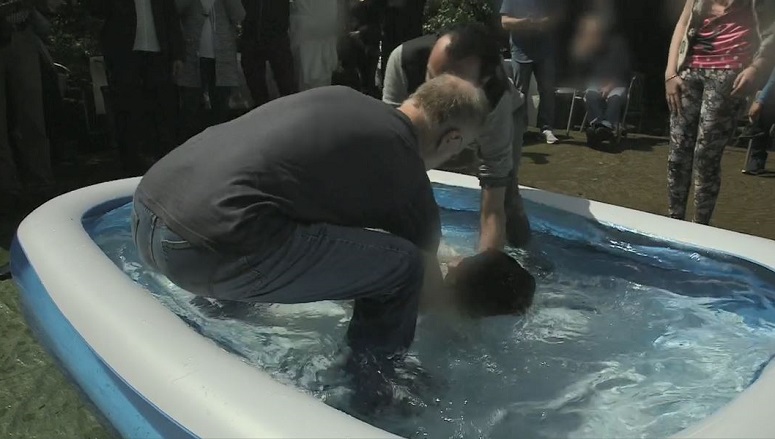
Thousands of Iranian asylum-seekers across Europe are turning to Christianity, though observers are not convinced that all claims of conversion are genuine.
A BBC documentary, Praying for Asylum, tells the story of a number of Iranian asylum-seekers in the Netherlands who say they have become Christians and would be exposed to persecution if they were deported.
Iranian-born church leader Masoud Mohammad Amin, who founded Cyrus Church, one of largest Iranian churches in Europe, said he had baptised thousands of Iranians, from the streets of Paris to Turkey.
“It might be situations in countries of origin… It might also be that churches have become more active in evangelising, and it might be that smugglers have been telling them stories about how to get asylum.”
Annick Oerlemans, Dutch Immigration Service
“We didn’t have an Iranian church; we didn’t have Iranian hymns; we didn’t have anyone to tell us about Iran’s role in the Bible… We needed a church with Persian culture,” he said.
He said the church, in the Dutch city of Harderwijk, has been so successful that “8,000 people in the Netherlands and 8,000 people outside the country have been baptised”.
However, a Dutch pastor interviewed, Gijs van den Brink, who baptises around 25 people a year, said he had been approached by some people whose motives he doubted.
He said that if someone asks to be baptised on his first visit to his church, which is east of Utrecht, “then I know enough; I know that he has a case and that he is searching for baptism … and I explain [to] him that it will not help him … because our government is not mad: they can easily come to know if you are a real believer or not… We’re not a group who is helping refugees to get asylum here.”
Annick Oerlemans, an official at the Dutch Immigration and Naturalisation Service, said that more than one interview each day was with an asylum-seeker who claimed they had converted to Christianity. She said the increase began after 2010. “It might be situations in countries of origin… It might also be that churches have become more active in evangelising, and it might be that smugglers have been telling them stories about how to get asylum,” she said.
In order to determine whether someone had genuinely become a Christian, she said interviewers had moved away from asking about Biblical knowledge to asking about people’s personal experiences. “Biblical knowledge can be studied, but when you ask people in-depth questions about their personal thoughts and feelings and experiences, and their motivations, you get a better idea of how genuine the conversion is,” she said.